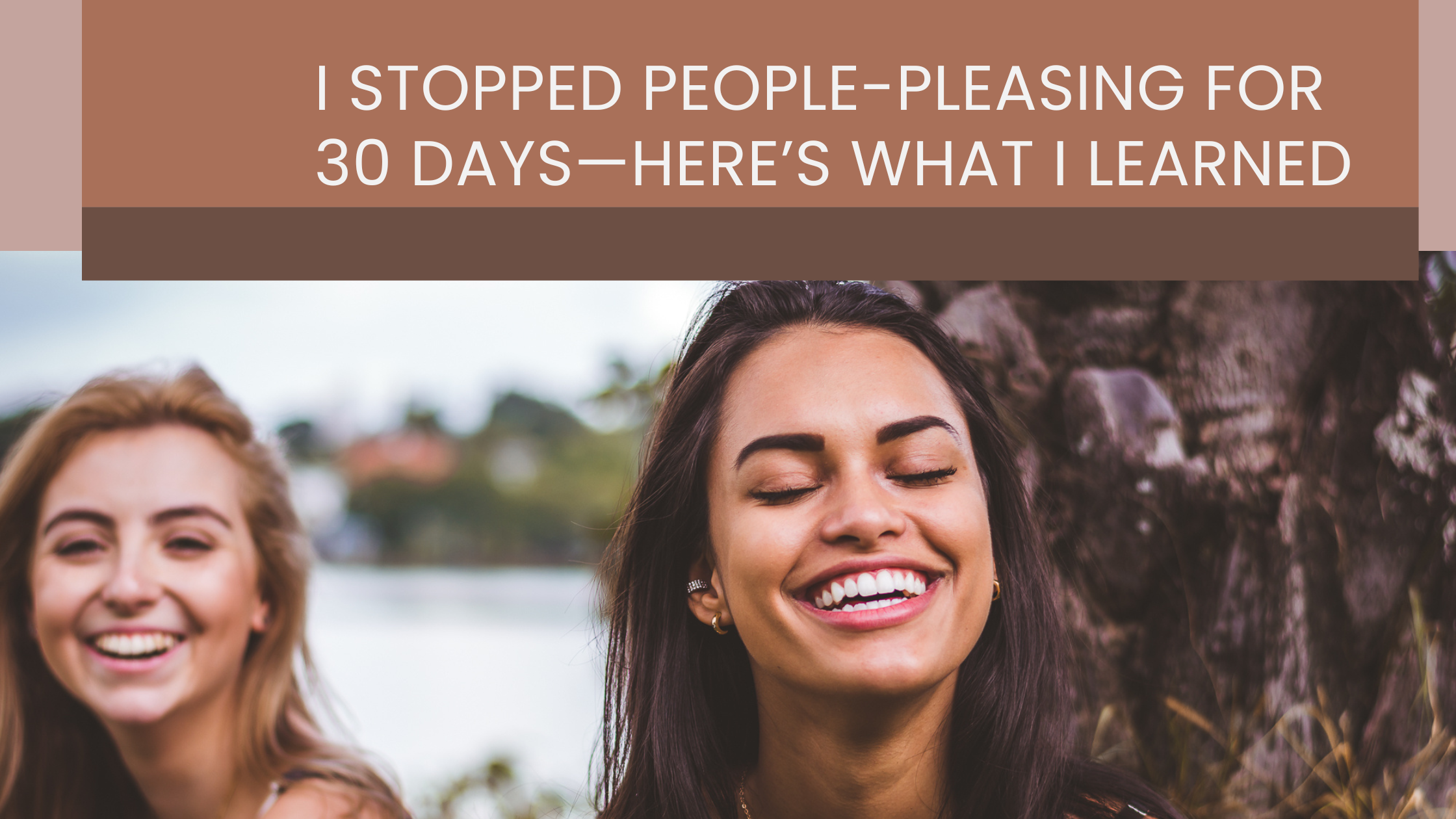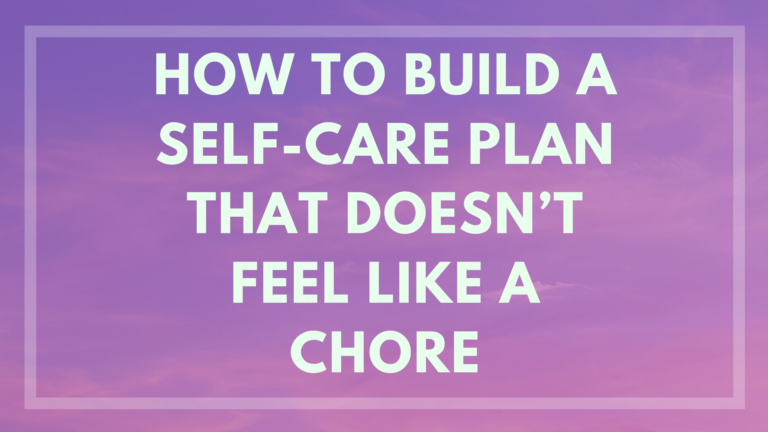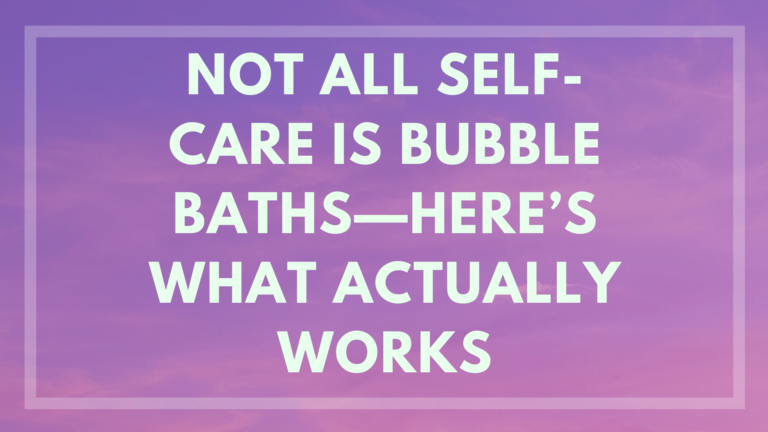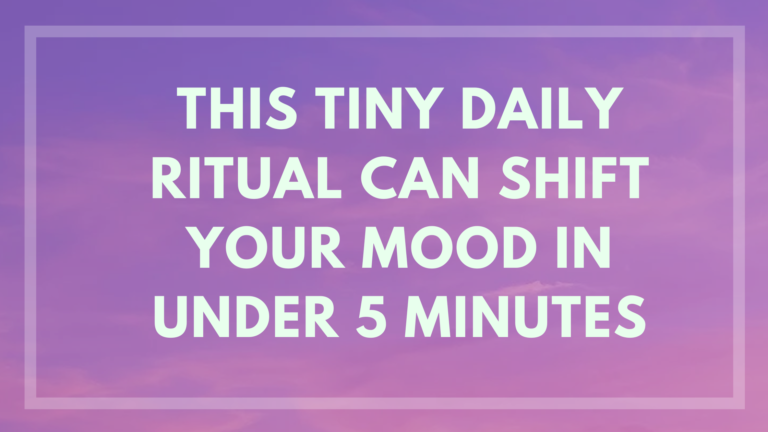For as long as I can remember, I’ve been a chronic people-pleaser. I said yes when I wanted to say no. I apologized for things that weren’t my fault. I avoided conflict, played it safe, and constantly sought approval. On the outside, it looked like I was being kind, helpful, and easygoing. On the inside, I felt drained, resentful, and invisible.So I gave myself a challenge: stop people-pleasing for 30 days. No more agreeing just to keep the peace.
No more bending over backward to be liked. No more silence when something didn’t feel right. What I learned during that month changed how I show up for myself—and others—for good.Here’s what happened.Saying “No” Didn’t Make Me a Bad Person One of the first things I learned was how powerful it feels to say no with honesty.
I always thought people would get upset or think I was selfish. But most of the time, they understood—and some even respected me more for being clear about my limits.Saying no didn’t make me rude. It made me honest. I started to realize that every time I said yes to someone else, I was often saying no to myself. That shift in perspective helped me make better choices without guilt.My Energy Came Back People-pleasing takes a toll.
Always being available, accommodating others, and avoiding confrontation is mentally exhausting. Once I stopped doing that, I noticed how much more energy I had. I felt lighter, more focused, and less anxious.
Tasks that used to feel overwhelming became easier because I was no longer stretched too thin.I also had more time for things that actually mattered to me—things I had been pushing aside to keep others happy.Not Everyone Was Happy—And That’s Okay Here’s the truth: some people liked the version of me who always said yes. When I stopped giving, not everyone responded positively.
A few were distant. Others acted confused or frustrated.At first, that hurt. But then I realized those reactions said more about them than me. The relationships that mattered adjusted and grew. The ones that didn’t? They faded—and that was a gift in disguise.I Became More Self-Aware Taking a break from people-pleasing forced me to ask questions I had avoided.
What do I want? What feels right to me? What am I doing out of genuine care versus fear of rejection?These questions helped me reconnect with my own values and desires. I learned to pause before responding, to check in with myself, and to honor my own voice.Boundaries Are a Form of Self-Respect Before this experiment, I rarely set boundaries.
I thought it made me difficult or demanding. But I started to understand that boundaries aren’t walls—they’re guides that protect your well-being.Whether it was saying no to late-night texts, stepping away from draining conversations, or asking for space, setting boundaries helped me feel more in control of my life. I wasn’t waiting for others to give me permission to take care of myself—I gave it to myself.
I Communicated Better Oddly enough, saying no and standing up for myself made me a better communicator. I became clearer, more direct, and more intentional with my words. Instead of hinting, apologizing, or avoiding, I learned to express what I felt and needed.That honesty led to more authentic connections. People weren’t guessing how I felt. They knew—because I told them.
I Didn’t Lose My Kindness—I Found My Backbone One of my biggest fears was losing the part of me that cared for others. But what I discovered is that you can be kind and assertive. You can be generous without overextending. You can love people without abandoning yourself.People-pleasing isn’t the same as compassion. True kindness includes yourself in the equation.
And when you’re no longer trying to be everything to everyone, you become more grounded, present, and sincere.
Final Thoughts Giving up people-pleasing for 30 days wasn’t easy, but it was one of the most liberating choices I’ve ever made. I learned to trust myself more. I learned that I’m allowed to take up space, have opinions, and protect my time. And I learned that the world doesn’t fall apart when you stop trying to be perfect for everyone else.If you’ve been stuck in the cycle of always saying yes, always seeking approval, and always putting yourself last—consider what it would mean to stop, even for a little while. You might find, like I did, that the real you is worth listening to. And once you hear that voice, you won’t want to go back.




